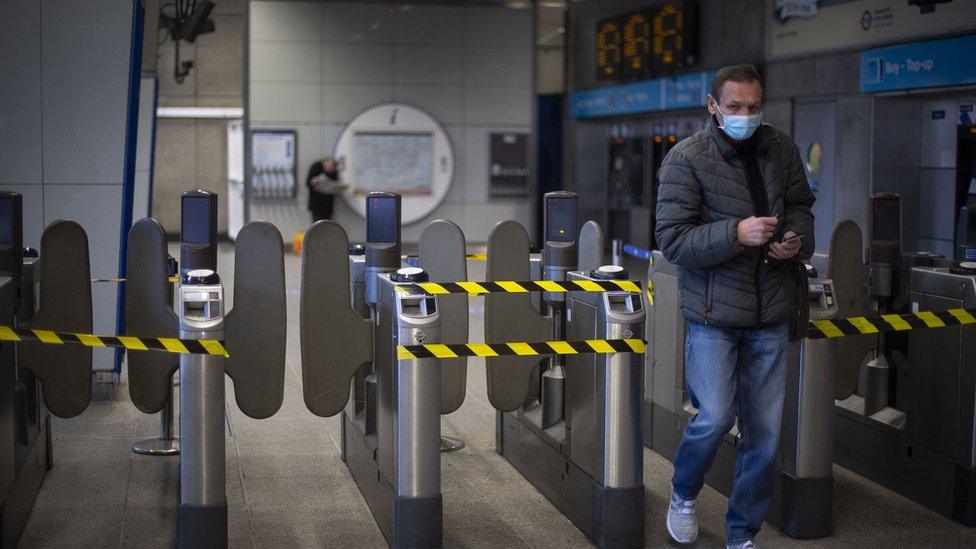London congestion charge rise to be made permanent
- Published
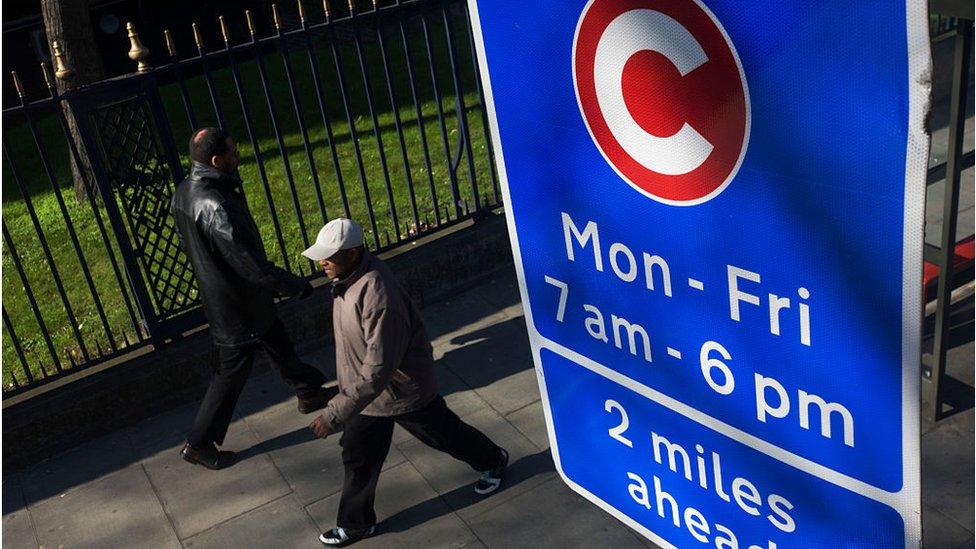
A 30% increase in the daily congestion charge for driving into central London will be made permanent under Transport for London (TfL) plans.
TfL had said the rise - from £11.50 to £15 a day - was a temporary measure when it was introduced in June 2020.
It now wants to keep the higher price but reverse the increase in the scheme's hours.
London Mayor Sadiq Khan said a public consultation would be held, and urged Londoners to take part.
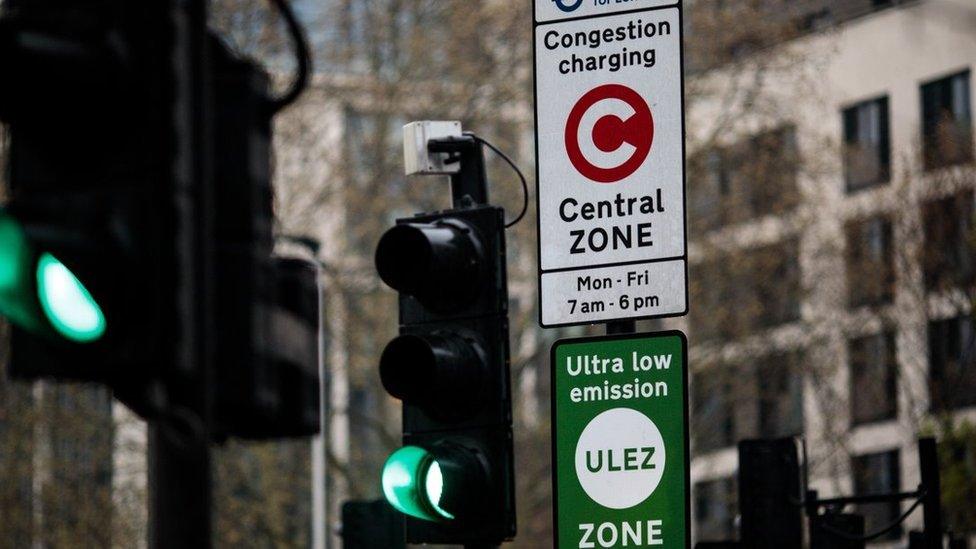
The plan to abolish the fee after 18:00 BST has been welcomed by entertainment businesses
The charge currently applies between 07:00 BST and 22:00, every day except Christmas Day.
The hours were extended during the pandemic, having previously run from 07:00 to 18:00 only on weekdays.
Under TfL's proposals, the charge would return to those hours, but be payable seven days a week.

Analysis: Tom Edwards, BBC London transport correspondent
Car use is now back to pre-pandemic levels and what the mayor is trying to do is balance controlling that with re-invigorating the central London economy.
We have ended up with a congestion charge compromise.
And so we see a tweak on the times when the new congestion charge will apply - in particular on weekends, when it will apply during that day with the aim of pushing people on to public transport.
But many weekend-orientated businesses won't like it.

The plan to abolish the fee after 18:00 was welcomed by entertainment businesses in the capital.
Kathryn McDowell, managing director of the London Symphony Orchestra, said more people would be able attend its events and "give the night-time economy a much-needed boost".
Nightclub Fabric's director Cameron Leslie added: "Any measure to encourage people back into central London at this time by whatever mode of transport should be wholeheartedly supported."
'New technology for fairer system'
Others felt tweaking the system was not the answer.
Green Assembly member Sian Berry said the changes risked "increasing pollution and danger in central London right when we need safer streets and lower traffic".
She added: "We need to be talking about bringing in a smarter, fairer privacy-friendly road-pricing scheme, rather than tweaks to a congestion charge that could have detrimental effects."
Centre for London said new technology would help make the system fairer and play a key role in filling the hole in TfL's budget.
The think tank's chief executive, Nick Bowes, said: "As a matter of urgency, Transport for London should make the most of new technology and develop a simpler, smarter and fairer system."
Mr Khan said the congestion fee needed to be at a level where it could help the city's economic recovery without compromising environmental improvements.
"These proposals support the capital's culture, hospitality and night-time businesses which have struggled so much, as well as encouraging people to walk, cycle and use public transport," he said.
"We must not replace one public health crisis with another due to filthy polluted air, and our measures to create more space for walking and cycling have already had a huge impact."
- Published15 May 2020
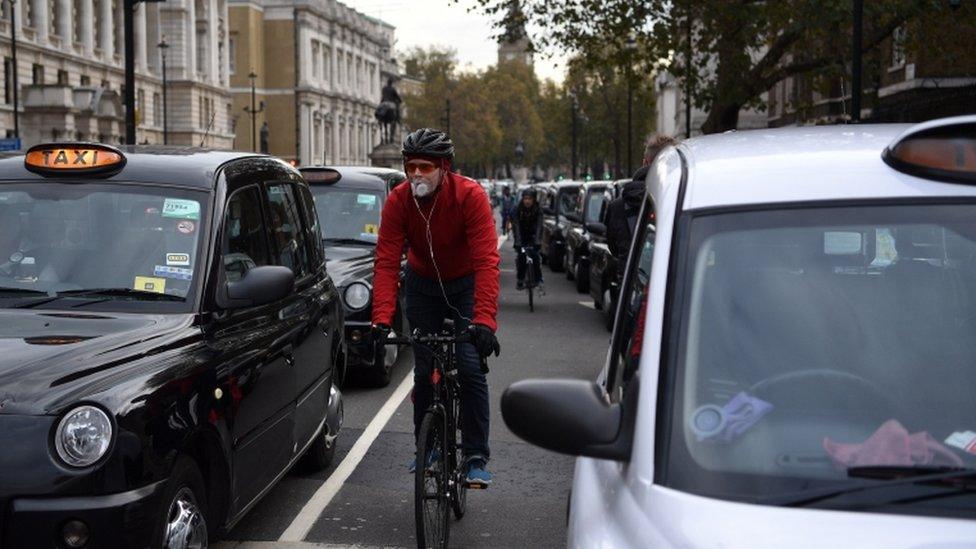
- Published14 May 2020
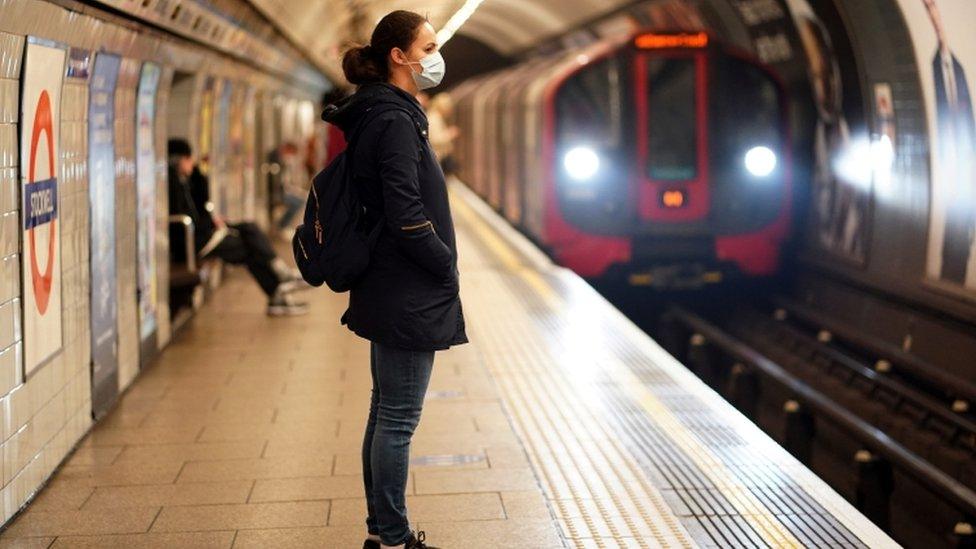
- Published12 May 2020
